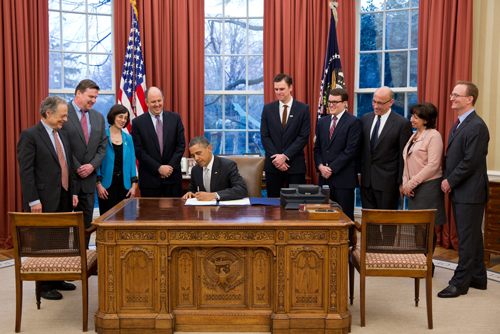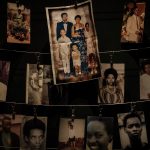Sponsoring hate radio and purchasing large quantities of hand-wielded weapons can result in an arrest on charges of genocide, even more than 25 years after the fact. That was the rare “good news of the day” on Saturday.
One of the world’s most wanted men was finally captured in a dawn raid on May 16 near his hideout in a Paris suburb, where he had been living under an assumed name. It was heartening to know that the COVID-19 pandemic, which has consumed global attention, has not stopped the pursuit of justice for some of the most heinous atrocities of the last century.
Félicien Kabuga, 84, was charged in 1997 with crimes against humanity and genocide by the International Criminal Tribunal for Rwanda (ICTR) in Arusha, Tanzania. His alleged crimes include providing the main financing of the Hutu extremists who raped, pillaged, burned homes and churches, and in the space of three months massacred as many as 800,000 people in the small east African country in 1994. As the founder and lead funder of the infamous Radio Télévision Libre des Mille Collines (RTLM), Kabuga is accused of managing a media machine that literally told people to go out and kill their neighbors and fellow citizens – members of Rwanda’s minority Tutsi people and political opponents.
Because the ICTR closed in 2015, it is expected that Kabuga will be handed over to the International Residual Mechanism for Criminal Tribunals in The Hague, established to prosecute outstanding cases of the international crimes in the former Yugoslavia and Rwanda. By the time it shuttered, the ICTR’s accomplishments had included the first international prosecution for the crime of genocide, and the first conviction for rape and sexual violence as forms of genocide.
Physicians for Human Rights (PHR) had contributed to ICTR investigations by organizing a team of forensic scientists from more than a dozen countries, who exhumed and examined a large mass grave near the Roman Catholic Church and Home St. Jean in the parish of Kibuye, above Lake Kivu in the northwest of Rwanda. From this single mass grave, one of many hundreds across the country, the PHR forensic team in 1996 uncovered and examined the remains of more than 450 people. Many of the bodies were not yet skeletons; 70 percent were women and children. Nearly 140 were the bodies of children and infants. The Kibuye site was investigated in connection with the indictment of the parish’s former prefect, Clemont Kayishema, a trained medical doctor whom the tribunal would eventually sentence to life in prison for the crime of genocide.
But some of those accused of genocide in Rwanda have eluded justice for decades. The commitment to pursue these alleged war criminals has never let up for people like PHR’s board member, Ambassador Stephen H. Rapp. A former chief of prosecutions at the ICTR and later U.S. Department of State ambassador-at-large for war crimes issues, Rapp recalls that the Kabuga matter “was a case in which I was deeply engaged from the time I arrived in Arusha in 2001. [Kabuga] had been chair of the board of RTLM. I personally prosecuted in the “Media trial” (2001-2003). Thereafter, I revised the indictment against Kabuga, and organized efforts for greater state cooperation to achieve his arrest, pressing for action by Kenyan authorities and then establishing a task force of European police authorities with U.S. agency support to search for him in Europe.”
Kabuga was eventually located with the help of the U.S. Rewards for Justice Program listing. Through the program, the U.S. had offered $5 million for information leading to Kabuga’s arrest. In 2013, I was privileged to be invited as a representative of PHR to join other advocates for international justice at the Oval Office, when President Obama signed this key legislation that expanded the State Department’s incentives for capturing those wanted by international tribunals on charges of crimes against humanity, war crimes, and genocide.

Efforts to pursue indicted war criminals can take years, even decades, and require patience, persistence, and international collaboration. As Ambassador Rapp points out: “Félicien Kabuga was arrested because of the cooperative efforts of multiple governments. These efforts resulted from the effective advocacy of PHR and other groups in pushing for protection of human rights through the prosecution of major perpetrators. The arrest of Kabuga is a reminder that time and distance will not protect those charged with responsibility for mass atrocities from the reach of justice.”
Fomenting hate in the extreme can lead to mass murder. Even in these uncertain times, it is reassuring to know that the perpetrators of the most heinous crimes can be pursued and brought to justice.

